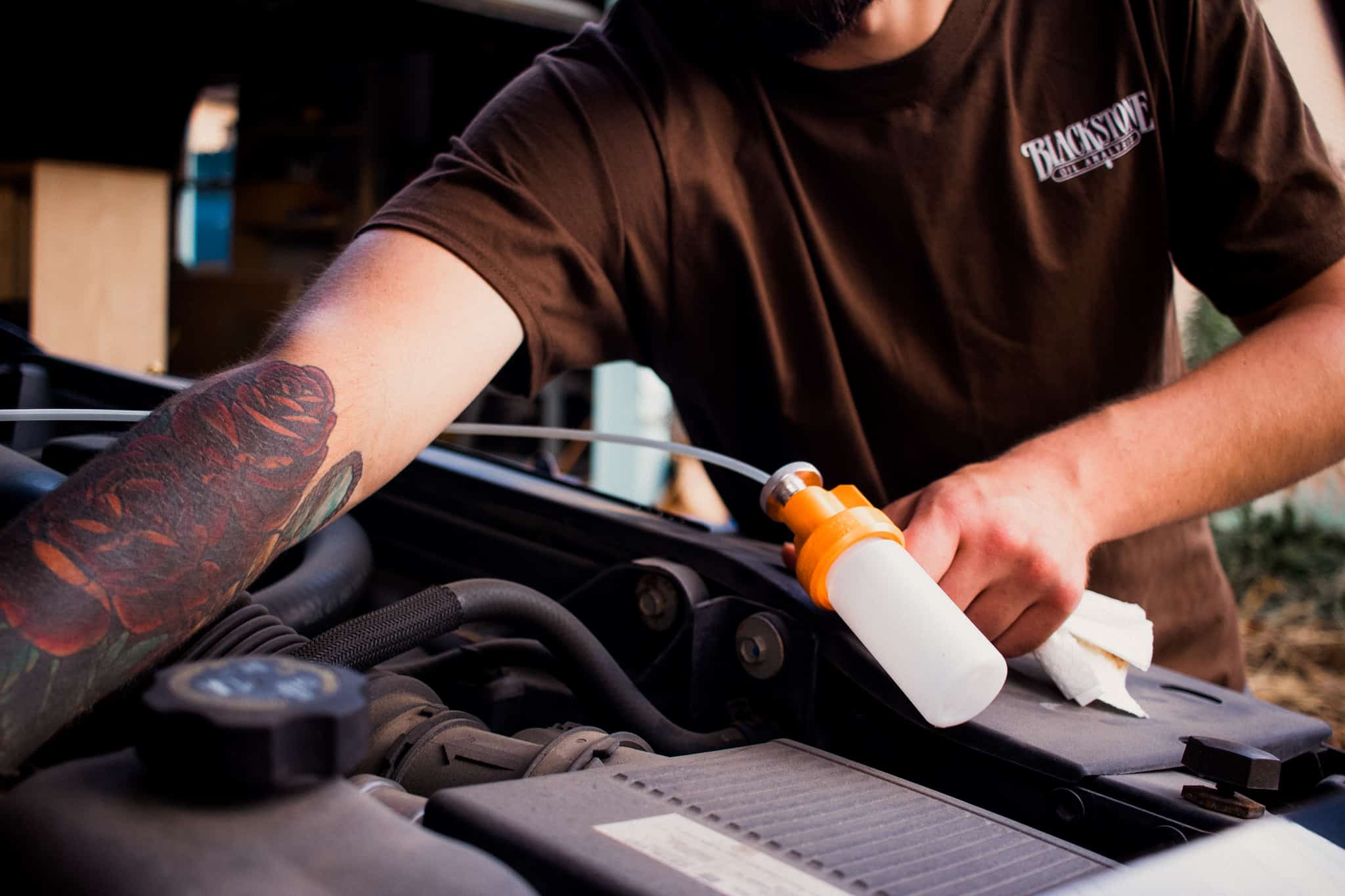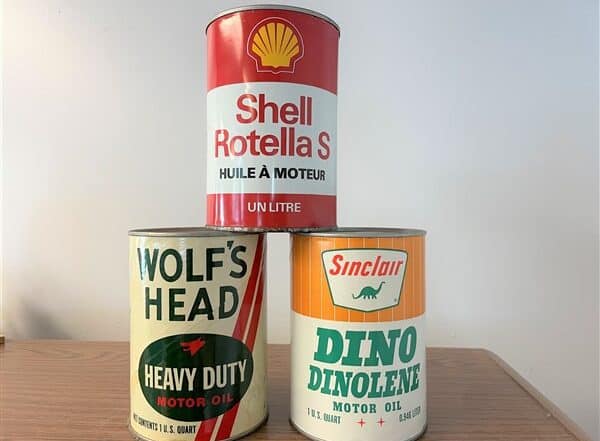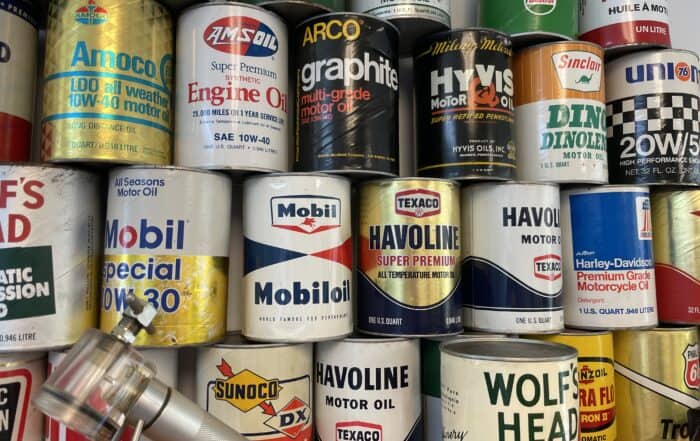How Often Should I Sample?
Every oil change? Every year?

One of the most common questions we get asked is, “How often should I send in a sample?” and this is one that I tend to struggle with answering.
The businessman in me says at every oil change regardless, and while you’re at it, check your transmission fluid, differential fluid, and your wife’s/husband’s car. And don’t forget any air compressors, lawn mowers, wood splitters, etc. you may own. And your neighbor’s car was smoking a bit last time you saw it drive past, better check that too.
Unfortunately, before I start talking, my “realist” side kicks in and I usually say something like once a year, after you have some good trends established. But even that answer doesn’t always apply. What if you don’t drive your vehicle very often, or at all? Is it really necessary to test the oil once a year? The answer to that is once again not really. Though if you think you might have a problem developing, then it could be a good idea to sample more often than you normally would.
Old oil
We recently had a customer send in a sample of oil that was in an engine for 10 years and had not been run at all in more than 5 years — and amazingly enough wear metals were virtually identical to what we were seeing when he last sampled 10 years ago.
The only significant difference was at insolubles. These had gone from 0.2% to 0.0% after the 5 years of sitting. We figured the reason for this was gravity. All normal engine oils contain dispersant additives, and their function is to hold dirt and solids in suspension so they can be filtered out. Do they work? Absolutely, but asking them to work for a full five years is a little much. The good news is that the additives are still in the oil, so once the engine starts up and sees some use, those solids should be picked up and dispersed again.
So, if we can say with good certainty that the oil itself won’t go bad just sitting in an engine, you might wonder why it needs to be changed at all? The answer to that is contamination.
Contamination problems
Engine oil has maybe the hardest life of any oil application out there. Not only does it see frequent temperature swings of 150° to 200°F (65° to 90°C), but it will also get contaminated with fuel blow-by and a little atmospheric water as well.
Ideally the fuel and water will boil out once the oil gets up to operating temperature, but that contamination will add up over time and eventually cause the oil to start to oxidize. If you can pinpoint exactly when the oil will oxidize enough that it will start to affect wear or cause the oil’s viscosity to change, that’s the point at which you want to change the oil. If you test your oil on a regular basis, you can start to identify that point and that’s one of the reasons why we’re here.
So when is the best time to get a sample? The answer to that is: it depends.
Best time to sample?
If you just bought a brand-new car, the first oil is factory oil and while that oil will sometimes have an unusual additive package, it’s not that useful for finding a problem, or developing a normal wear trend.
Factory oil is typically loaded with excess metal from wear-in of new parts as well and some silicon from sealers used when the engine was assembled, and this stuff normally takes two or three oil changes to wash out.
So, while these samples aren’t useful as far as trends go, they are useful in finding problems in engines that have been recently rebuilt or had other major work done, and we always recommend testing those from the beginning. This is because if wear metals don’t drop from that initial oil fill, it can be the early indication of a problem.
It’s always a good idea to get a trend going while the engine is running well. A trend consists of three samples. Once we have that established and the engine is running perfectly, then it’s not really necessary to get a sample at each oil change and at that point it’s okay in most cases to go to a once-a-year sampling routine.
Once a year?
You might be wondering why once a year? The reason for that is two-fold. One: A lot of people (including myself) only change their oil once a year. It’s also the only time I crawl under my car and have the hood open. I consider it like an annual inspection and there are been numerous times that I have been on my back waiting for the oil to drain when I noticed another problem like a seeping freeze-plug or a torn CV boot. Two: It’s easy to remember.
However, the once-a-year rule doesn’t always apply. There are many vehicles out there that only see light use (maybe less than 500 miles a year), so not only can they typically skip changing oil on a yearly basis, then don’t need to sample every year.
Another factor is how important the vehicle is to you. If you rely on it for your business, or it’s the only vehicle you have and it’s getting up there in mileage, then sampling at every oil change might be a very good idea.
Engines speak before they fail
We can see problems developing in your engine long before they actually cause a failure, so you normally have some time to do something about any trouble we might spot. Still, like a lot of things in life, the earlier you know about problems the better.
We get as lot of samples from engines that have a known problem, so we test the oil and usually see poor wear, but telling how bad the problem is or how/when it started is hard without trends from when the engine was normal. We do have averages that give us a good idea how an engine should look overall, but they aren’t as valuable as trends when it comes to saying exactly what’s normal for a particular engine and the use it sees.
So there you have it, I’m actually saying you may not need our services as much as you might think. Some of the other business owners out there might call me crazy and I guess they’re right. But please, feel free to sample anytime you like. As you know there is nothing better than getting a glowing oil report on your pride and joy.
Related articles
The eBay Oils (Part 2)
Part 2 in our series on oil additive packages from the old days
The eBay Oils (Part 1)
What kind additives did oil have back in the old days?
Ryan’s Cholesterol
What do cholesterol and oil analysis have in common?
Blackstone and the Post Office
Why does the post office take so long?








